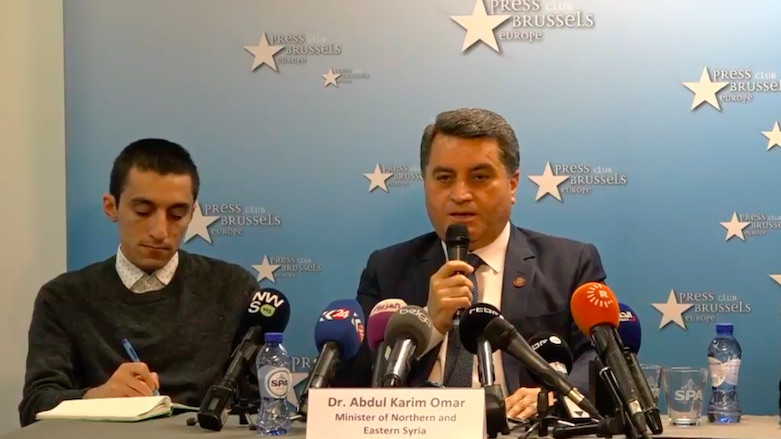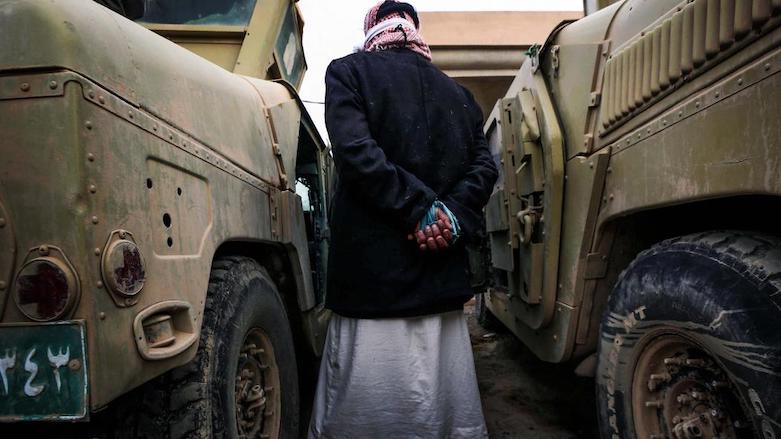Syrian Kurds hold conference in EU capital to press for return of IS wives, children

ERBIL (Kurdistan 24) – Abdul Karim Omer, a top Syrian Kurdish official in the Autonomous Administration in Northeast Syria, has called on European governments to take back wives and children of Islamic State (IS) members.
So far, no European governments have taken back IS wives, fighters, or children, the official said during a press conference on Wednesday organized by the Kurdish institute in Brussels. Only the United States, Sudan, Russia, and Indonesia have taken back some wives and children.
“We had communication with the Belgian Ministry of Foreign Affairs, but they were only interested in extraditing the children,” Omer stated, stressing that they “believe women and children shouldn’t be separated.”
According to the Syrian Kurdish official, the countries where these IS fighters, wives, and children are from “are not taking responsibility and put all the burden on [the] self-administration.”
Omer noted that the press conference was held to highlight the issue and “pressure those countries to act.”
The official said they now hold 790 foreign IS fighters, 584 women, and over 1,248 children from 46 different countries.
“This is very dangerous because our area is not stable, and because of the Turkish attacks on our region.”
According to Human Rights Watch (HRW), many countries have refused to take back nationals who are suspected IS members.
“In these cases, greater international cooperation is needed to find alternative countries to prosecute them fairly, and that would allow victim participation in trials,” HRW said in a recent report.
Philippe Vansteenkiste, President of V-Europe, a representative of the association for victims of terrorism in Belgium and France, who visited the camps in northeastern Syria where the women and children are held in camps, attended the presser.
He said the longer the wives and children remain in camps, the more dangerous it becomes due to the risk of radicalization and a desire for revenge.
“Let’s try to bring them here, and educate them,” Vansteenkiste said about the children.
Nadim Houry, a terrorism/counterterrorism director at HRW, told Kurdistan 24 the press conference is a clear sign the local de facto authorities in northeast Syria cannot cope with the burden.
“Over the last few months, we have heard many European countries like France say these foreigners should be prosecuted in northern Syria. This press conference is a clear reminder that the local authorities in northern Syria feel they are unable and they do not want to face this burden, and they do not want to prosecute them.”
The local authorities in northern Syria have not yet brought any suspected foreign IS fighters to trial, and have declared they do not plan to.
“Given this position, it’s imperative to find alternatives and to prosecute those suspected of grave crimes. The best place for Europeans would be their home countries,” the HRW director noted.
The return of IS fighters “is a shared responsibility by home countries and the international coalition,” Houry concluded, not just a responsibility for the authorities in the northeast of Syria.
Editing by Karzan Sulaivany

